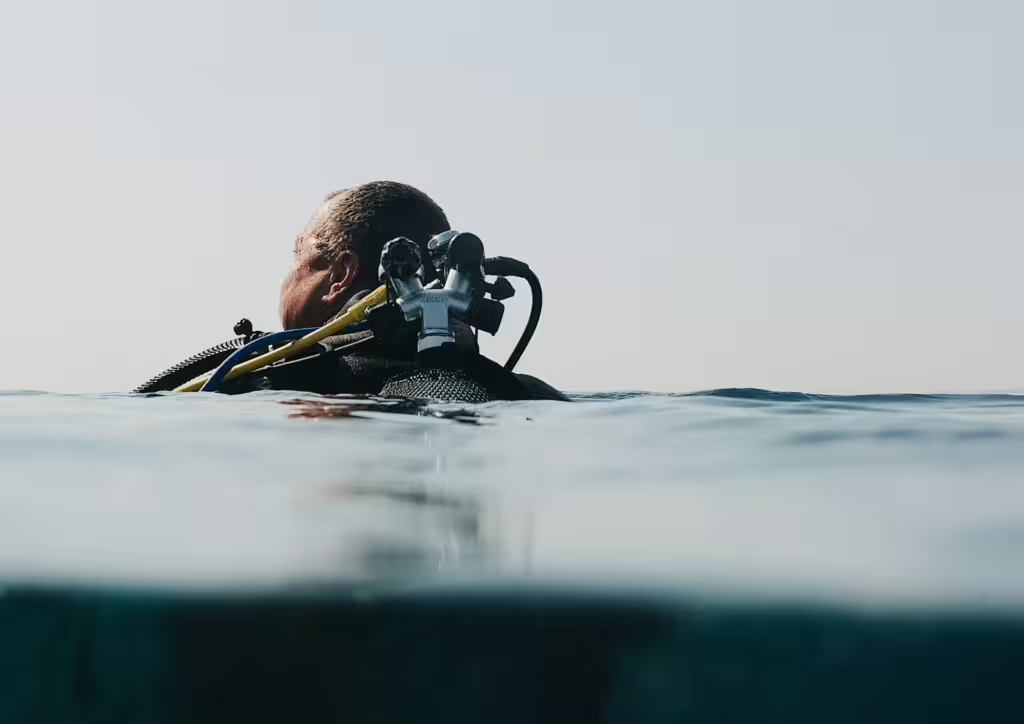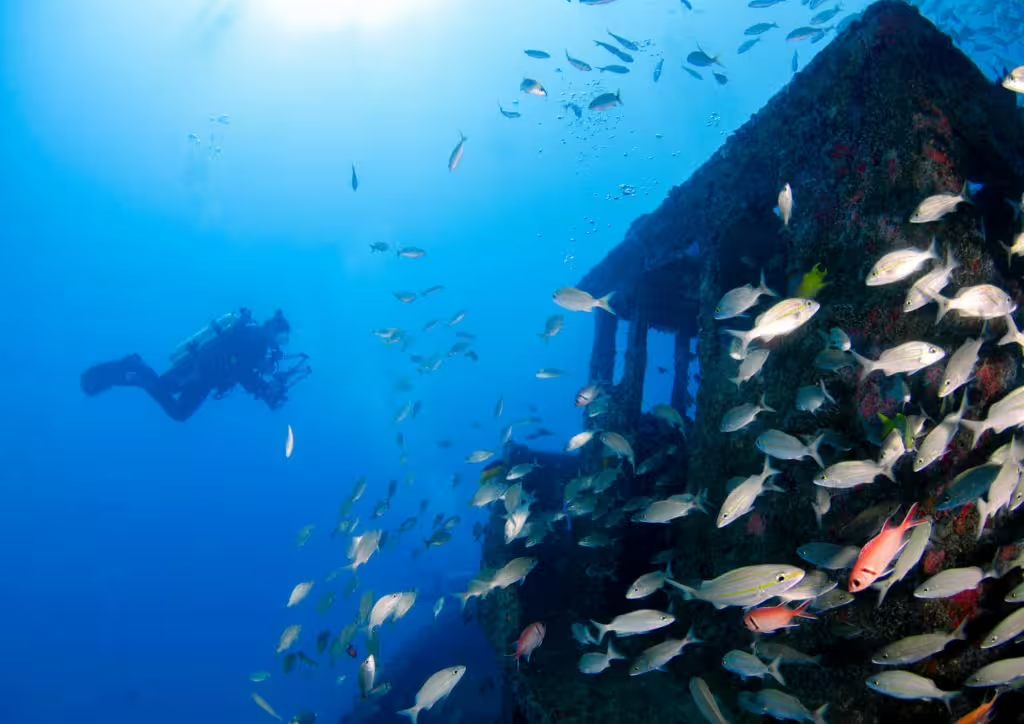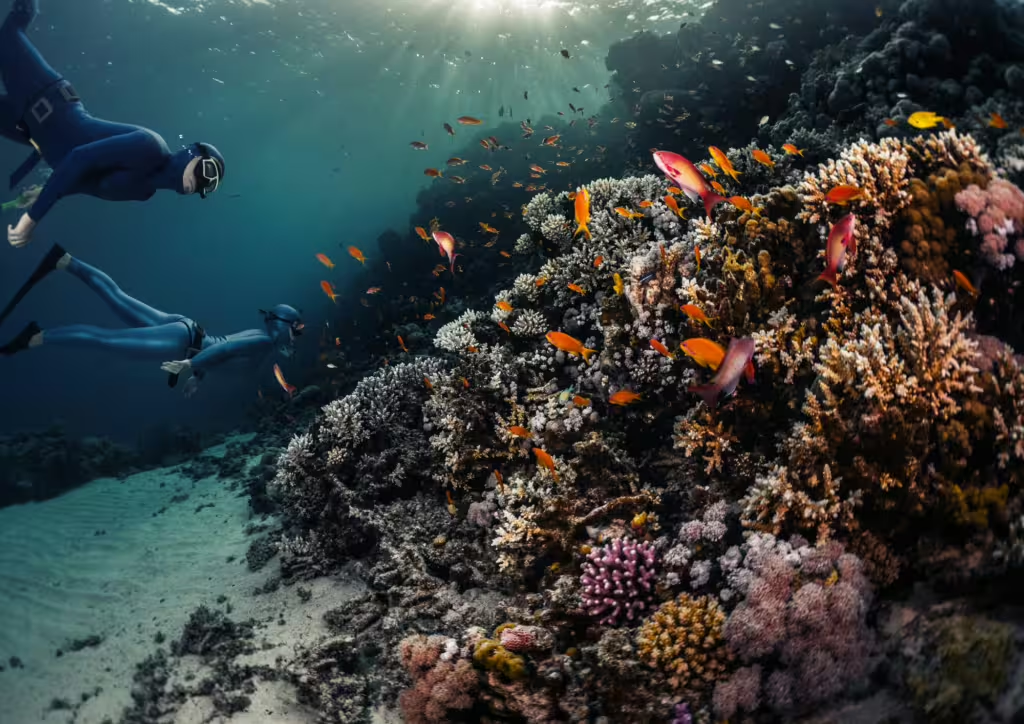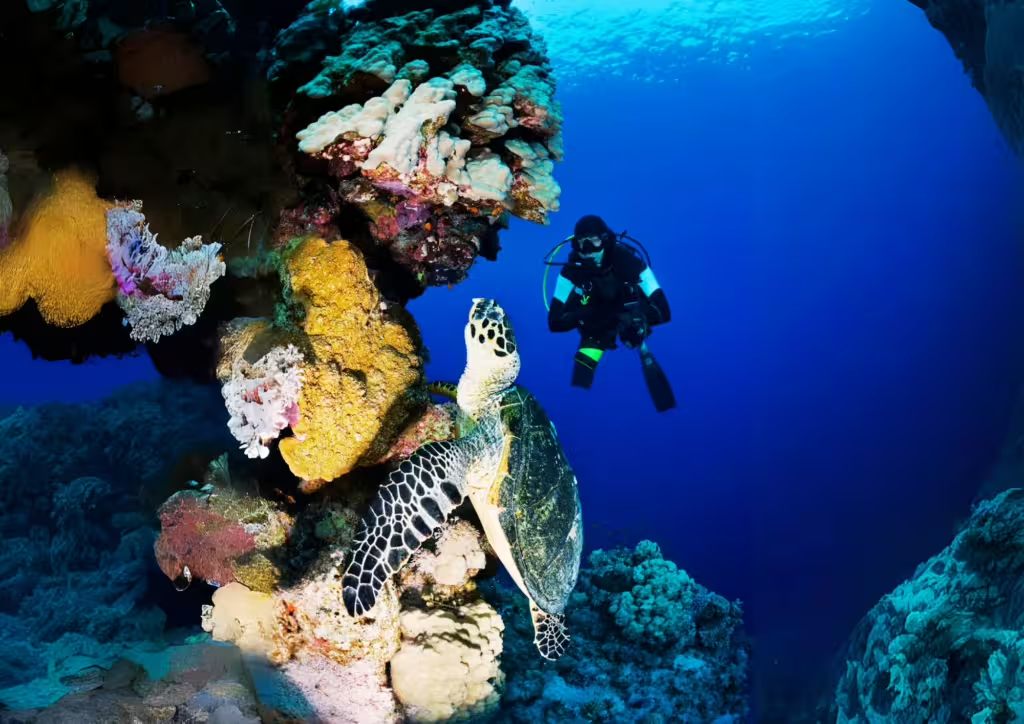With so many options available, one of the most popular choices is the SSI Scuba Course in Bali, known for its flexible and student-focused approach. Alongside SSI, PADI also stands out as a globally recognized certification agency, each offering unique benefits. In this blog, we’ll compare the SSI Scuba Course in Bali with PADI courses to help you decide which suits your needs best.
Whether you’re aiming to upgrade your skills or start fresh, the SSI Scuba Course in Bali provides an excellent foundation for safe and enjoyable diving. From theory modules to open water dives, every aspect of the SSI Scuba Course in Bali is designed to build confidence and competence underwater. If you’re planning your next adventure, consider the SSI Scuba Course in Bali as your gateway to exploring the ocean like never before.
Overview of SSI and PADI Certification
When it comes to scuba diving certification, SSI (Scuba Schools International) and PADI (Professional Association of Diving Instructors) are the two leading organizations worldwide. Both offer excellent training programs designed to equip divers with essential skills and knowledge for safe and enjoyable diving. SSI is known for its emphasis on in-water skills and hands-on training, encouraging divers to spend more time practicing in real diving environments. Many divers find that an SSI Scuba Course in Bali offers a more flexible and personalized learning experience.
On the other hand, PADI has a more structured and standardized approach, making it easier for learners to progress through the ranks. Both systems are highly respected and recognized globally, so your choice may depend on personal preferences or the specific dive shops available in Bali. Choosing between SSI and PADI can also be influenced by the availability of courses in Bali, where local dive schools offer distinctive packages that cater to both certification paths. For those who value adaptability, the SSI Scuba Course in Bali allows divers to complete training in modular segments, ideal for travelers on a flexible schedule.
Whether you lean towards the flexibility of an SSI Scuba Course in Bali or the systematic approach of PADI, understanding these two certification programs will help you find the right fit for your underwater adventure. Taking an SSI Scuba Course in Bali is not only a great way to gain confidence and skills, but also a chance to explore some of the most stunning dive sites in the world. Whichever you choose, both paths promise unforgettable experiences beneath the waves of Bali’s vibrant marine ecosystems—and the SSI Scuba Course in Bali is a standout option for many.
Key Differences Between SSI and PADI

When it comes to scuba diving courses, both SSI (Scuba Schools International) and PADI (Professional Association of Diving Instructors) are renowned worldwide, offering diverse training programs suited for different diving enthusiasts. One key difference between the two lies in their teaching methods. An SSI Scuba Course in Bali offers a more interactive approach, combining online learning with practical sessions, allowing students to grasp theoretical concepts while engaging with instructors.
Conversely, PADI focuses on a highly structured educational model, with a strong emphasis on standardized guidelines and a series of skill developments that ensure divers are well-prepared. This makes PADI courses particularly appealing for those who prefer a well-defined curriculum to follow. Another notable distinction is in the recognition and flexibility of certifications. While both are globally accepted, an SSI Scuba Course in Bali is often favored for its adaptability and ease of access through many local dive centers.
If you’re planning to enroll in an SSI Scuba Course in Bali, you’ll find an extensive network of dive shops and instructors ready to help you explore the underwater world. Choosing an SSI Scuba Course in Bali also means enjoying flexible training modules, making it ideal for travelers. Understanding these key differences can help you make an informed choice—and for many, the SSI Scuba Course in Bali stands out as a top option for personalized, practical dive education.
Benefits of Taking an SSI Scuba Course in Bali
One of the primary benefits of taking an SSI Scuba Course in Bali is the flexibility it offers. SSI stands out for its modular learning approach that allows students to study at their own pace. This means that divers can complete their theoretical learning online, making it easier to fit scuba training around travel plans or other activities while enjoying the island’s beautiful surroundings. Additionally, SSI emphasizes practical experience and skill mastery, ensuring that students feel comfortable and confident before diving into deeper waters.
The smaller class sizes often associated with SSI courses enable personalized instruction, providing a more tailored learning experience compared to larger groups found in other diving certification organizations. Another significant advantage of SSI courses is the strong emphasis on safety and environmental awareness. SSI’s training includes the importance of protecting coral reefs and marine life, which is especially crucial in a vibrant ecosystem like Bali’s.
This focus not only equips divers with the necessary skills to dive safely but also instills a sense of responsibility for preserving our oceans. As an SSI-certified diver, you will be part of a global mission to promote sustainable diving practices. Thus, an SSI Scuba Course in Bali not only leads to personal growth as a diver but also contributes positively to the wider marine environment.
Advantages of PADI Courses for Divers in Bali

PADI, or the Professional Association of Diving Instructors, is one of the most recognized diving certification agencies in the world, and its courses are tailored to be user-friendly and accessible to divers of all skill levels. One of the primary advantages of PADI courses for divers in Bali is their global reputation, which can be beneficial if you plan to dive in different parts of the world in the future. With a vast network of dive centers and instructors available, you can find support and resources easily, whether you’re in Bali or traveling abroad.
Additionally, PADI’s emphasis on experiential learning ensures that you gain practical skills and knowledge while enjoying the breathtaking underwater beauty that Bali offers. Their comprehensive course structure also prepares divers for various environments, making PADI an ideal choice for both beginners and experienced divers looking to explore Bali’s vibrant marine life. Moreover, PADI offers a variety of specialty courses, such as underwater photography, wreck diving, and nitrox diving, providing divers with opportunities to tailor their experiences according to their interests.
This flexibility can enhance your dive adventure in Bali, as you can focus on specific skills or areas that excite you the most. The availability of engaging learning materials, including mobile apps and online resources, ensures that you are well-prepared before you even hit the water. Consequently, enrolling in a PADI course in Bali not only equips you with essential diving skills but also ensures a fun and engaging educational journey, allowing you to make the most of your underwater adventures.
What to Expect from an SSI Scuba Course in Bali
When you choose an SSI Scuba Course in Bali, you can expect a comprehensive and engaging learning experience that prioritizes your safety and comfort. SSI courses are designed to be flexible, allowing students to learn at their own pace, which is particularly beneficial for those who may feel apprehensive about diving. The courses typically consist of both theoretical knowledge and practical sessions in the water, ensuring that you gain a solid understanding of all essential diving skills.
Instructors are highly trained and provide personalized attention to each student, creating an interactive environment where you can ask questions and receive guidance tailored to your needs. Moreover, SSI emphasizes a strong community aspect, with their dedicated dive centers offering a variety of social activities and events for students. This is an excellent way to meet fellow divers and build friendships, making your diving experience even more enriching.
Upon completion of your SSI Scuba Course in Bali, you will not only receive a certification that is recognized worldwide but also have a newfound confidence in your diving abilities, ready to explore the breathtaking underwater landscapes that Bali has to offer. Overall, SSI courses are perfect for those looking for a supportive, flexible, and community-driven learning environment.
What to Expect from a PADI Scuba Course in Bali
When considering a PADI Scuba Course in Bali, you can expect a structured learning environment that emphasizes safety and enjoyment. PADI, or the Professional Association of Diving Instructors, is one of the most recognized certification agencies globally, and their courses are designed to cater to divers of all skill levels. You will begin with theory lectures that cover essential diving concepts, followed by confined water training where you’ll practice fundamental skills.
Once you’re comfortable, you’ll then venture into the beautiful dive sites of Bali, exploring vibrant coral reefs and the stunning underwater biodiversity the island has to offer. Instructors provide guidance throughout the process, ensuring that you gain confidence and proficiency in your diving skills. One of the distinctive features of a PADI course is its modular approach. This allows you to learn at your own pace, providing opportunities to revisit specific skills if needed.
The courses typically culminate in a series of open water dives, where you can showcase your new abilities in an exciting and engaging environment. As you dive into the captivating underwater world of Bali, you’ll also have the chance to meet fellow diving enthusiasts, making the experience not only educational but also socially enriching. By the end of your PADI course, you will be equipped with the knowledge and skills needed to dive safely, and you’ll walk away with a globally recognized certification to continue your adventures in the ocean.
Choosing the Right Course for Your Diving Goals

When deciding between SSI and PADI scuba courses in Bali, it’s essential to align your choice with your specific diving goals. SSI, or Scuba Schools International, offers a more flexible approach with its emphasis on teaching divers through diving clubs and dive centers. This often creates a more personable learning experience, allowing instructors to tailor their teaching to the individual student’s needs.
On the other hand, PADI, the Professional Association of Diving Instructors, has a more structured curriculum recognized worldwide, making it ideal for those looking to achieve professional certifications that might be required if you plan to work in the dive industry or travel extensively. Both organizations provide excellent training, but your preference will hinge on whether you value a more personable learning environment or a standardized global certification.
Another factor to consider is the types of diving experiences you are interested in. SSI focuses heavily on ocean conservation and eco-friendly diving practices, aligning with Bali’s beautiful marine biodiversity. This could resonate more if you’re planning to engage in conservation projects or eco-tours during your dive trips. Conversely, PADI courses cover a broader range of specialties and adventure diving options, which may attract those itching for exploration and thrill-packed dives. Ultimately, evaluating both schools’ offerings in light of your diving goals will help you make an informed decision about which scuba course in Bali is right for you.
Reviewing Top Dive Schools in Bali for SSI and PADI
Bali is renowned for its vibrant marine life and stunning underwater landscapes, making it a premier destination for scuba diving enthusiasts. When choosing between SSI (Scuba Schools International) and PADI (Professional Association of Diving Instructors), it’s essential to review the top dive schools that offer these certifications. Schools like Bali Dive Trek and Blue Season Bali not only provide comprehensive coursework but also emphasize safety and environmental responsibility.
These institutions have experienced instructors and flexible schedules, catering to divers of all levels, from beginners to advanced. Their programs often include practical dive experiences that help students gain hands-on skills and confidence in the water, setting them up for memorable diving adventures in Bali’s iconic sites. When comparing SSI to PADI courses, consider that each organization has its unique approach toward education and training.
Testimonials from previous students highlight that institutions like Eco Dive Bali offer an immersive SSI Scuba Course in Bali, focusing on dive theory and practical skills in real-time diving conditions. On the other hand, PADI-affiliated schools, like AquaMarine Diving, are praised for their structured programs and global recognition, appealing to those who may wish to dive worldwide in the future. Ultimately, both SSI and PADI schools in Bali offer excellent training, so your choice may depend on personal preferences and the specific dive experiences that captivate you the most.
Making the Right Choice for Your Bali Scuba Adventure
In conclusion, both SSI and PADI offer exceptional scuba courses in Bali that cater to various preferences and skill levels. If you’re looking for a more personalized approach with a focus on diving skills and environmental awareness, the SSI scuba course in Bali may be the better fit for you. Conversely, if you prefer a globally recognized certification with standardized teaching practices, PADI might be the ideal choice. Ultimately, your decision should align with your learning style, desired diving experience, and future diving goals.
Choosing between SSI and PADI may seem daunting, but understanding the nuances of each program can help you make an informed decision. Consider what aspects of training are most important to you, and don’t hesitate to reach out to local dive shops for recommendations. Whichever path you take, both certifications will open up a world of underwater exploration, allowing you to cherish the breathtaking marine beauty of Bali for years to come.

